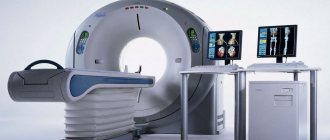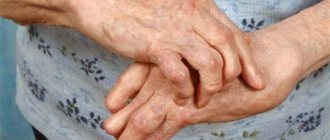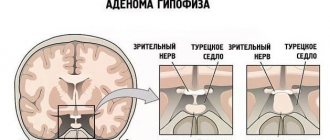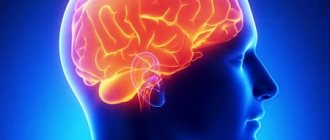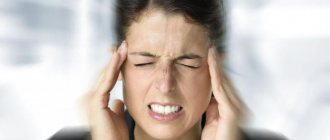Neurasthenia is a fairly common type of psychological disorder , which can occur as a result of prolonged exposure to various psychologically traumatic factors, such as lack of sleep, constant stress at work and at home.
Often the cause may be physical overload or a previous infectious disease.
Neurasthenia is difficult to diagnose because it can easily masquerade as other types of psychological disorders, such as depression or stress.
The main signs of the disease may be:
- high irritability;
- weakness;
- frequent headaches that do not stop over time;
- other various disorders of the vegetative-vascular system.
Most often, this type of psychological disorder affects men aged 20 to 40 years. In turn, women are more resistant to neurasthenia.
What it is?
Astheno-neurotic syndrome, or neurasthenia, is a disorder belonging to the group of neuroses. This disease is characterized by rapid fatigue, irritability, and inability to engage in prolonged physical or mental work. The pathology was first described by the American physician George Beard in 1869.
Often, neurasthenia develops against the background of a combination of mental trauma with physiological limitations or excessive physical activity. Lack of sleep, lack of necessary rest and other factors weaken the body, and the nervous system is one of the first to suffer.
Frequent relapses of infectious diseases or endocrine disorders, poor nutrition, or prolonged/persistent intoxication can also lead to the development of neurasthenia. It can develop due to alcohol abuse, excessive smoking, etc.
Folk remedies for treatment
Self-therapy is usually discouraged without the approval of a doctor. Neurasthenic syndrome is no exception. However, you can use the following remedies in the early stages of the disease or together with complex treatment:
- Herbal decoction. Thyme, drupes or bearberry are commonly used because they have soothing properties. The herb (dry and crushed) must be poured with boiling water and cooked for about 5 minutes. This decoction is used 1 tbsp. spoon several times a day.
- Herbal infusion. The cooking principle is the same, only this solution does not need to be boiled, but simply cover with a lid and let it brew. Hawthorn fruits and lingonberry leaves are perfect here.
- Tincture. This liquid is infused with high-quality vodka. This medicine sits in a dark place for about 10 days before being ready for use. 15-20 drops before meals 3 times a day.
Causes
Neurasthenia develops, as a rule, under the influence of not one, but several factors at once. The most common reasons are biological and, above all, genetics.
Thus, patients with a family history of mental disorders or neurotic disorders are more susceptible to developing neurasthenia than others.
In addition, emphasis is placed on complications during the gestational period, infectious diseases suffered by a pregnant woman, difficult childbirth, and injuries to the baby received during movement along the birth canal. Another biological factor predisposing to the development of this disorder is an anomaly in the development and functioning of the nervous system.
Premorbid personality characteristics form the psychological basis for the development of neurasthenia. They can occur due to psychological trauma suffered by a person in childhood.
Neurasthenia, which develops due to prolonged exposure to psychotraumatic situations, has an extremely negative impact on human health. A sudden manifestation of pathology is noted if the powerful stress experienced by the patient was caused by relevant and important events for him.
Asthenic syndrome can be a consequence of exposure to social factors. A significant role in this case is given to the family climate, the conditions for the upbringing and development of a person as an individual. Also of no small importance is the patient’s social circle, his hobbies and interests, and the degree of satisfaction with his achievements and endeavors.
Causes of neurasthenia
The causes of this type of neurosis can be very different:
- it may be a common vitamin deficiency;
- transmission of any infectious diseases;
- continuous exposure to various types of mental stimuli;
- in some cases, the disease can even be caused by diabetes.
But, despite everything, the main causes of neurasthenia are still considered to be a lack of strength due to lack of sleep, constant troubles related to work or home, and constantly arising stressful situations.
Very often, the causes of the disease are a discrepancy between psychological and physical capabilities , various physical overloads, and lack of time to rest.
Various chronic diseases play a huge role, mainly intoxications or diseases associated with the nervous system, for example, vegetative-vascular dystonia.
But, despite this, neurasthenia can be caused by other reasons, which will differ from patient to patient.
Symptoms
The most common symptom of neurasthenia is cephalalgia (headache). It is diffuse in nature and usually occurs in the afternoon, towards evening. The patient complains of a feeling of pressure in the upper part of the head. This compression is called the “neurasthenic helmet.”
An equally common complaint among patients with neurasthenia is an attack of dizziness. This state is accompanied by a feeling of rotation in the head, but surrounding objects are not involved in this process. Often, an attack of dizziness occurs during severe physical or mental stress.
Symptoms of neurasthenia can manifest themselves in the form of cardiovascular disorders. In this case, the ailments will be expressed:
- tachycardia;
- feeling of increased heart rate;
- the occurrence of pressing or stabbing heart pain;
- hypertension;
- hyperemia or pallor of the skin.
These symptoms can occur even with minor excitement, such as during a lively conversation.
Neurasthenia may be accompanied by attacks of heartburn, belching with an unpleasant odor, nausea, and loss of appetite. At the same time, other symptoms may appear in the form of a feeling of heaviness in the abdomen, stool disorders, and flatulence.
Disturbances in the urinary system may occur. Even with slight anxiety, the patient may be tormented by a frequent urge to urinate.
With neurasthenia, the sexual sphere also suffers. Thus, men experience premature ejaculation during an attack, as a result of which the duration of sexual intercourse is significantly reduced. This, in turn, can lead to the development of complexes and the emergence of dissatisfaction with oneself.
Neurasthenia is divided into 3 forms.
Hypersthenic neurasthenia
This is the initial stage and the mildest form of the disease. Manifested by irritability and increased excitability. The patient experiences a feeling of irritation even with the slightest noise, conversations, any sounds, and even with the ordinary movement of a crowd of people. In such a state, a neurasthenic can easily lose his temper, yell at loved ones or colleagues, and insult.
Along with these symptoms, there is a decrease in performance. This happens due to a decrease in concentration, inability to concentrate, absent-mindedness and inability to start a new thing, or finish something already started from the point where it was stopped. This occurs due to overstrain of attention, which the patient simply cannot cope with.
Thus, a “vicious circle” is obtained. A person is distracted from an activity by external factors, and when he feels that he can continue what he has started, the situation repeats again. As a result, significant time is wasted, but labor productivity is significantly reduced.
At this stage, sleep disorders are present. A neurasthenic person has difficulty falling asleep, often wakes up in the middle of the night, and suffers from nightmares associated with the worries and worries experienced during the day.
As a result, waking up in the morning is accompanied by a feeling of weakness, fatigue, and “cloudiness” in the head. These ailments go away only towards evening.
In addition, patients often complain of cephalgia, memory loss, general malaise, weakness throughout the body, and discomfort in different parts of the body. At this stage, the so-called “neurasthenic helmet” syndrome occurs.
Irritable weakness
The second stage of neurasthenia is intermediate.
At this time, so-called irritable weakness appears. It manifests itself in the form of increased excitability, accompanied by irritability and fatigue, as well as general exhaustion of the body.
Even minor trifles can lead to an outburst of anger or increased excitability in the patient, which, however, quickly subsides. Increased excitability is characterized by the appearance of tearfulness, which was not previously noticed in the patient, or impatience.
The patient begins to react sharply to loud sounds, noise, and bright light. He cannot fully control his emotions, so he often “takes it out” on others.
At the same time, there is a violation of active attention. The patient complains of absent-mindedness and forgetfulness. Emotional lability is manifested by outbreaks of aggression and agitation, alternating with moments of complete depression. In severe cases of neurasthenia, patients experience so-called exhaustion depression: they become gloomy, apathetic, and lethargic.
This disease is always accompanied by sleep disturbances: difficulty falling asleep, nightmares, insomnia at night and fatigue, drowsiness at night. Patients often complain of headaches, rapid heartbeat, decreased or complete loss of appetite. In addition, patients suffer from attacks of heartburn, belching, and a feeling of heaviness in the stomach. Possible sexual dysfunction.
The stage of irritable weakness often develops in choleric patients, as well as in persons with a balanced and strong type of nervous system. This happens due to the fact that recovery during the treatment of neurasthenia at the hypersthenic stage has not occurred, and the person is still surrounded by a painful environment.
Hyposthenic neurasthenia
At the last stage of neurasthenia, general weakness and exhaustion of the body manifest themselves quite clearly. A person suffers from fatigue, drowsiness, he becomes lethargic and apathetic. Patients are unable to force themselves to get down to business, they are overwhelmed, and are very worried about their somatic disorder.
Against the background of depression, there is constant massive asthenia. The person is constantly gloomy, anxious, and loses interest in previous hobbies. In this case, we are not talking about melancholy or anxiety, and the patient’s bad mood is exclusively neurotic in nature. It is literally riddled with asthenia, and is accompanied by mood swings and tearfulness. Quite often, patients become fixated on their internal sensations and develop hypochondriacal complaints. During treatment, patients' sleep improves, and this is where the process of complete recovery from a neurological disease begins.
As the pathology progresses, attacks of ailments and psycho-emotional disorders become more frequent and worsen. As depressions become deeper, they will gradually begin to approach the cyclothymic level. Even old researchers and authors of scientific works noted that patients may periodically develop neurasthenia. This is also indicated by the latest data obtained from clinical studies. They confirm that untreated neurasthenic depression can develop into cyclothymia over time.
Classification and characteristic symptoms
It is customary to distinguish several forms of the disease:
- The hypersthenic type is characterized by the prevalence of signs of irritability and excessive excitability. Such people are aggressive and unable to cope with their emotions. Symptoms of this type of neurasthenic syndrome are quite characteristic and are recorded even in a calm environment. Such overstrain prevents patients from concentrating and leads to conflicts, both in the family and at work. Children also often suffer from this form of neurotic manifestations, and their aggression can be more pronounced than in adults.
- Irritable weakness develops against the background of hypersthenic neurosis with continued exposure to unfavorable environmental factors. People with a predisposing type of higher nervous activity, in particular choleric people, are most susceptible to this disorder. Neurons are gradually depleted during excitation reactions. This leads to constant fatigue, while the patient cannot rest normally. Patients suffer from insomnia, which only aggravates the course of neurasthenia. At the same time, irritability also occurs. However, it becomes shorter lasting and often turns into hysterics or tears.
- The hyposthenic form of neurosis manifests itself differently. Patients feel empty and constantly tired. They act distant and have difficulty making contact. This type of neurasthenia can be accompanied by depression, and then the person’s condition sharply worsens. He is unable to work or perform daily activities. Weakness is felt literally on a physical level. At the same time, even long rest and sleep do not restore strength.
Signs of the disorder are individual in each case. Neurasthenic syndrome in children may differ from clinical manifestations in adults due to the characteristics of their psyche that is not fully formed. This should be taken into account when diagnosing the problem.
Neurasthenia is found everywhere throughout the world, although not in every country it is considered a full-fledged nosological entity. For example, some doctors in the United States believe that this disorder is very similar to chronic fatigue syndrome. It is also characterized by nervous exhaustion and somatic problems, which often provoke depression and sleep disturbances. According to some experts, this pathology is a modern version of the more outdated term “neurasthenia.” The criteria for defining these disorders, according to the literature, are the same, and the therapeutic methods of combating them are also similar. However, there is a certain difference. It consists mainly of changing the patient's social life. People suffering from neurasthenia behave much more conflictingly and aggressively than those who have chronic fatigue syndrome.
This is why communication with a psychologist is important. Most doctors are inclined to believe that sessions of working on the patient’s personality are of greatest importance in the fight against this disorder. This approach also helps to avoid possible side effects of taking medications used to control the patient’s emotional state.
Diagnostics
To make a diagnosis, you need to contact a neurologist. The disease is identified through a thorough history taking, based on the clinical manifestations of the pathology in the patient. During diagnosis, it is important to exclude the presence of somatic, infectious or chronic diseases in the patient, which may be accompanied by neurasthenia.
Neurasthenia can develop against the background of a tumor lesion of the brain, inflammatory pathologies or neuroinfection. To exclude this possibility, a CT or MRI of the head is performed. To make an accurate diagnosis, it is important to assess cerebral blood flow. For this purpose, it is advisable to conduct rheoencephalography.
Symptoms and signs of neurasthenia
According to statistics, neurasthenia most often affects young men aged 20 to 40 years, but this condition also occurs in women, and quite often. In some cases, this disorder also occurs in adolescents, as well as in young children - it usually affects impressionable, vulnerable, sensitive children in families where one of the relatives also suffers from neuroses.
How does neurasthenia manifest in adults and children? The clinical picture of this disorder can be very varied, so you should not try to diagnose yourself. But if you notice some of these symptoms in yourself or your child, it is a good idea to consult a doctor.
In addition to the symptoms described above (headaches, sleep disturbances, etc.), neurasthenia can manifest itself:
- noise and ringing in the ears.
- dizziness.
- muscle spasms.
- pain in the heart area.
- hand tremors
- increase or decrease in pressure.
- frequent urge to urinate.
In children, this disorder can be expressed in constant fatigue and depressed mood. Sleep disturbances and decreased performance in school due to difficulty concentrating are also observed. The child may complain of headaches, digestive disorders, and loss of appetite.
A striking symptom of neurasthenia in adults is a disorder of sexual desire. In this case, men may experience situational impotence or premature ejaculation. Both of these phenomena are not associated with somatic disorders in the body and go away on their own when neurasthenia is eliminated.
Treatment
The issue of treatment should be dealt with exclusively by a qualified neurologist. He can also refer the patient for additional consultations with other medical specialists.
The approach to therapy for such a complex disease as neurasthenia must be comprehensive. Alas, not all patients take this pathology seriously, deciding that they can get rid of it using “grandmother’s” methods. Or, even worse, patients believe that the neurasthenia will go away on its own.
However, this pathology is no less dangerous than diseases that affect various internal organs. And the therapeutic approach to it must be responsible. And only a qualified specialist can provide it.
Even if the doctor allows treatment on an outpatient basis, you will have to strictly follow all his instructions. Modern medicine recommends treating neurasthenia in several ways:
- By normalizing the daily routine. Throughout the course of therapy, the patient should avoid any facts that could lead to a new outbreak of neurasthenia. Walking in the fresh air, healthy, full sleep, proper nutrition - all these aspects play a huge role in the treatment of neurasthenia. If therapy is carried out on an outpatient basis, it is important for the patient to carry it out at home, taking sick leave or vacation for a while.
- Through the use of general strengthening medications: vitamin-mineral complexes, tonic drinks of plant origin, etc.
- Through the use of tranquilizers. As a rule, for neurasthenia they resort to prescribing Elenium, Diazepam, Phenotropil, etc.
- With the help of physiotherapy. All procedures should promote relaxation, therefore, for neurasthenia, it is advisable to conduct massage sessions, electrosleep, aromatherapy, etc.
In addition to the basic therapeutic techniques described above, the patient needs constant support from loved ones. It is necessary in any case, and regardless of the reasons for the development of neurasthenia.
Drug treatment of neurasthenia
Treatment of neurasthenia with medications is considered more effective. Its downside is the likelihood of side effects. Let's look at the medications that a doctor can prescribe:
- For a general strengthening effect - hopantenic acid, products containing iron, calcium glycerophosphate, bromine and caffeine.
- Elimination of associated cardiovascular problems - tincture of hawthorn, valerian and motherwort.
- For the hypersthenic form of the disease, use various tranquilizers (for example, nitrazepam).
- For problems sleeping, use mild sleeping pills (for example, zolpidem).
- In the hyposthenic form - eleutherococcus, pyritinol in small dosages.
- For any form of neurasthenia - thioridazine in small doses for the hyposthenic form, in large doses for the hypersthenic form.
- For a tonic effect - ginseng, pantocrine.
Gorbunova Elvira
Neurologist, 4 years of experience. 2009-2015 BSMU, Faculty of Medicine, 2015-2016 BSMU PDO, internship - neurology.
Ask a Question
Physiotherapeutic methods, as well as massage treatments and aromatherapy, are considered effective. Exercise therapy is indicated, but the introduction of physical exercise into daily life should be gradual.
Neurasthenia in children
An equally common illness is neurasthenia among children and adolescents. This is explained by the fact that the child’s body is not yet fully formed, and the immune system is not strengthened. But neurasthenia is a reversible pathological process, which, with timely and correct treatment, will not have any negative impact on the development of the child’s body and the formation of the child as an individual.
The most common cause of neurasthenia in children is psychological trauma they received at an early age. Lack of proper care or necessary parental attention also plays an important role in the development of this disease. In boys, neurasthenia often manifests itself during school years, against the background of various ups and downs, disagreements and various psycho-emotional shocks. As for girls, they are exposed to this disease mainly at an older age.
The development of pathology is often associated with the wrong approach of parents to raising children. Imposition of subjective points of view, high demands, coercion, moral pressure - all these factors have a detrimental effect on the child’s psyche. Children also experience very acutely the divorce proceedings of their parents, quarrels and tragedies in the family (loss of relatives, etc.).
In some children, the development of neurasthenia occurs against the background of congenital mental characteristics and acquired character traits. Past serious illnesses are also quite capable of causing asthenic syndrome.
A woman’s behavior during pregnancy is of great importance. It is important to avoid stress and anxiety in order to protect the future baby from nervous system disorders after birth.
Young children suffering from neurasthenia are unable to cope with any difficulties. The only way out of a difficult situation for them is to cry. They find it difficult to adapt to kindergarten and school. Moreover, modern school programs are designed in such a way that children get very tired, morally and psychologically overworked. Therefore, a task that is easily tolerated by a healthy child is poorly solved by a neurasthenic.
Children with neurasthenia are very absent-minded. They cannot fully concentrate on household chores, so they have to spend a lot of time on them.
It is very difficult for little neurasthenics to make friends, since constant sweating and manifestations of dermatographism make a repulsive impression on other children. Also, such children have to work hard for extra classes, attending clubs, sports clubs, etc.
Depending on the type of asthenic syndrome, the child may be cholericly excited, or lethargic, apathetic, and slow. In addition to the main symptoms, children with neurasthenia may be haunted by various fears, phobias, and frights. Some patients have had negative reactions to chemicals or various foods.
Little neurasthenics are very withdrawn; they avoid communication not only with peers, but also with adults. Their actions often reveal selfishness and emotional incontinence.
It is necessary to be able to distinguish neurasthenia from hysteria, in which children also become very capricious, literally unbearable. But many parents attribute the child's bad behavior and capriciousness to neurasthenia, without recognizing the fact that they themselves are to blame for this. Bad manners and asthenic syndrome are completely different concepts.
Quite often, sympathy and overwork cause disorders in the gastrointestinal tract, poor sleep and appetite. When frightened, cases of night urination are possible. Along with hysteria, there is a possibility of disruption of the child’s biorhythms.
Diagnosis
The diagnosis is established on the basis of the wedge, pictures and if there is a history of a certain traumatic situation, as well as overwork.
N. should be distinguished from outwardly similar asthenic syndromes (see) for various exogenous and endogenous diseases, in which there are no experiences associated with a traumatic situation; signs of psychoorganic syndrome, diffuse neurological microsymptoms, and EEG changes of an organic type are noted.
With low-progressive (neurosis-like) schizophrenia (see), unlike N., there is no true exhaustion, fatigue, while at the same time there is autism, emotional decline, thinking disorders, rudimentary delusional disorders.
Prevention
No person is immune from the development of neurasthenia, since stress, overwork, and psycho-emotional shocks happen in everyone’s life. However, you can reduce the risk of its occurrence if:
- radically reconsider your lifestyle and make the necessary adjustments to it;
- avoid stress, psycho-emotional disorders, moral trauma;
- regulate the intensity of physical activity performed;
- alternate mental and physical work;
- eat well;
- strengthen the immune system;
- set aside time for sports.
Working day planning requires special attention. It is necessary to be able to leave a certain period of time in reserve to resolve unforeseen situations, as this will help to avoid stress. We must not forget that productive work is possible only after proper sleep and rest. You shouldn’t limit yourself to this, no matter how much work you have to do. You will see for yourself that after a good rest, even the largest amount of work will be completed much faster and easier.
An excerpt characterizing Neurasthenia
Some men took off their hats, some, without taking off their hats, looked at those who had arrived. Two long old men, with wrinkled faces and sparse beards, came out of the tavern and, smiling, swaying and singing some awkward song, approached the officers. - Well done! - Rostov said, laughing. - What, do you have any hay? “And they are the same...” said Ilyin. “Vesve...oo...oooo...barking bese...bese...” the men sang with happy smiles. One man came out of the crowd and approached Rostov. - What kind of people will you be? - he asked. “The French,” Ilyin answered, laughing. “Here is Napoleon himself,” he said, pointing to Lavrushka. - So, you will be Russian? – the man asked. - How much of your strength is there? – asked another small man, approaching them. “Many, many,” answered Rostov. - Why are you gathered here? - he added. - A holiday, or what? “The old people have gathered on worldly business,” the man answered, moving away from him. At this time, along the road from the manor's house, two women and a man in a white hat appeared, walking towards the officers. - Mine in pink, don’t bother me! - said Ilyin, noticing Dunyasha resolutely moving towards him. - Ours will be! – Lavrushka said to Ilyin with a wink. - What, my beauty, do you need? - Ilyin said, smiling. - The princess ordered to find out what regiment you are and your last names? - This is Count Rostov, squadron commander, and I am your humble servant. - B...se...e...du...shka! - the drunk man sang, smiling happily and looking at Ilyin talking to the girl. Following Dunyasha, Alpatych approached Rostov, taking off his hat from afar. “I dare to bother you, your honor,” he said with respect, but with relative disdain for the youth of this officer and putting his hand in his bosom. “My lady, the daughter of General Chief Prince Nikolai Andreevich Bolkonsky, who died this fifteenth, being in difficulty due to the ignorance of these persons,” he pointed to the men, “asks you to come... would you like,” Alpatych said with a sad smile, “to leave a few, otherwise it’s not so convenient when... - Alpatych pointed to two men who were running around him from behind, like horseflies around a horse. - A!.. Alpatych... Eh? Yakov Alpatych!.. Important! forgive for Christ's sake. Important! Eh?.. – the men said, smiling joyfully at him. Rostov looked at the drunken old men and smiled. – Or perhaps this consoles your Excellency? - said Yakov Alpatych with a sedate look, pointing at the old people with his hand not tucked into his bosom. “No, there’s little consolation here,” Rostov said and drove off. - What's the matter? - he asked. “I dare to report to your excellency that the rude people here do not want to let the lady out of the estate and threaten to turn away the horses, so in the morning everything is packed and her ladyship cannot leave.” - Can't be! - Rostov screamed. “I have the honor to report to you the absolute truth,” Alpatych repeated. Rostov got off his horse and, handing it over to the messenger, went with Alpatych to the house, asking him about the details of the case. Indeed, yesterday’s offer of bread from the princess to the peasants, her explanation with Dron and the gathering spoiled the matter so much that Dron finally handed over the keys, joined the peasants and did not appear at Alpatych’s request, and that in the morning, when the princess ordered to lay money to go, the peasants came out in a large crowd to the barn and sent to say that they would not let the princess out of the village, that there was an order not to be taken out, and they would unharness the horses. Alpatych came out to them, admonishing them, but they answered him (Karp spoke most of all; Dron did not appear from the crowd) that the princess could not be released, that there was an order for that; but let the princess stay, and they will serve her as before and obey her in everything. At that moment, when Rostov and Ilyin galloped along the road, Princess Marya, despite the dissuading of Alpatych, the nanny and the girls, ordered the laying and wanted to go; but, seeing the galloping cavalrymen, they were mistaken for the French, the coachmen fled, and the crying of women arose in the house. - Father! dear father! “God sent you,” said tender voices, while Rostov walked through the hallway. Princess Marya, lost and powerless, sat in the hall while Rostov was brought to her. She did not understand who he was, and why he was, and what would happen to her. Seeing his Russian face and recognizing him from his entrance and the first words he spoke as a man of her circle, she looked at him with her deep and radiant gaze and began to speak in a voice that was broken and trembling with emotion. Rostov immediately imagined something romantic in this meeting. “A defenseless, grief-stricken girl, alone, left at the mercy of rude, rebellious men! And some strange fate pushed me here! - Rostov thought, listening to her and looking at her. - And what meekness, nobility in her features and expression! – he thought, listening to her timid story. When she spoke about the fact that all this happened the day after her father’s funeral, her voice trembled. She turned away and then, as if afraid that Rostov would take her words for a desire to pity him, she looked at him inquiringly and fearfully. Rostov had tears in his eyes. Princess Marya noticed this and looked gratefully at Rostov with that radiant look of hers, which made one forget the ugliness of her face. “I can’t express, princess, how happy I am that I came here by chance and will be able to show you my readiness,” said Rostov, getting up. “Please go, and I answer you with my honor that not a single person will dare to make trouble for you, if you only allow me to escort you,” and, bowing respectfully, as they bow to ladies of royal blood, he headed to the door. By the respectful tone of his tone, Rostov seemed to show that, despite the fact that he would consider his acquaintance with her a blessing, he did not want to take advantage of the opportunity of her misfortune to get closer to her. Princess Marya understood and appreciated this tone. “I am very, very grateful to you,” the princess told him in French, “but I hope that all this was just a misunderstanding and that no one is to blame for it.” “The princess suddenly began to cry. “Excuse me,” she said. Rostov, frowning, bowed deeply again and left the room. - Well, honey? No, brother, my pink beauty, and their name is Dunyasha... - But, looking at Rostov’s face, Ilyin fell silent. He saw that his hero and commander was in a completely different way of thinking. Rostov looked back angrily at Ilyin and, without answering him, quickly walked towards the village. “I’ll show them, I’ll give them a hard time, the robbers!” - he said to himself. Alpatych, at a swimming pace, so as not to run, barely caught up with Rostov at a trot. – What decision did you decide to make? - he said, catching up with him. Rostov stopped and, clenching his fists, suddenly moved menacingly towards Alpatych. - Solution? What's the solution? Old bastard! - he shouted at him. -What were you watching? A? Men are rebelling, but you can’t cope? You yourself are a traitor. I know you, I’ll skin you all... - And, as if afraid to waste his reserve of ardor in vain, he left Alpatych and quickly walked forward. Alpatych, suppressing the feeling of insult, kept up with Rostov at a floating pace and continued to communicate his thoughts to him. He said that the men were stubborn, that at the moment it was unwise to oppose them without having a military command, that it would not be better to send for a command first. “I’ll give them a military command... I’ll fight them,” Nikolai said senselessly, suffocating from unreasonable animal anger and the need to vent this anger. Not realizing what he would do, unconsciously, with a quick, decisive step, he moved towards the crowd. And the closer he moved to her, the more Alpatych felt that his unreasonable act could produce good results. The men of the crowd felt the same, looking at his fast and firm gait and decisive, frowning face.
Forecast
Neurasthenia is the mildest type of neuroses, and therefore has very positive prognoses. Timely treatment and elimination of the negative effects of stress and psycho-emotional stress helps to completely get rid of this disorder.
If you do not respond to alarming symptoms in time, the disease will progress to the chronic stage. Of course, this is not dangerous for the life of a neurasthenic, but frequent falling into deep depression will certainly leave a negative mark on the psychological state of the neurasthenic.
(Visited 156 times, 1 visits today)
Massage as a treatment
This method of therapy is not the main one, but is perfect in combination with the main course of treatment. The main purpose of massage is to relax the body, improve blood circulation and the functioning of internal organs.
Movements should be smooth so that the patient feels relaxed. It is not recommended to use claps or strikes with the edge of the palm. The average duration of a massage course is about two weeks, 20 minutes daily. Sometimes it is appropriate to conduct a session in a dark room if the patient is very tired, both mentally and physically.
Causes of the disease
The development of this pathology is characterized by a whole complex of reasons, among which are a deficiency of vitamins in the body, poor functioning of the immune system, diabetes mellitus, and the presence of malignant tumors in the body.
The disease occurs with excessive mental and physical stress, with severe anxiety and stress. In working adults, this disease often appears due to troubles at work or poor relationships in the team. Problems in interpersonal relationships and divorce in the family also provoke a neurasthenic state.
Often this pathology is congenital or manifests itself in childhood.





